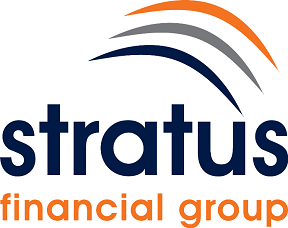It’s a conundrum, and the answer is a resounding ‘that depends’.
How you use your money depends on your individual circumstances, what’s best for you, your goals and other factors including your tolerance of risk. Changed economic circumstances including historically low interest rates have meant a considerable re-think for many people who may have previously been wedded to a particular financial approach.
When it comes to getting ahead financially, it’s important to understand your available options in alignment with your long-term financial goals.
Considerations for paying down your home loan
If you have a home loan, it’s a balancing act that considers risk, return and your future retirement.
Say for example, you are a risk adverse person and you’d feel better paying extra money to your home loan. While it’s true, making extra repayments will help you to pay off your home loan faster, there may be other considerations.
Home loan repayments, including any additional amounts you wish to pay off your loan, use after-tax money. For some high-income earners in the top tax bracket, your money-in-hand is what’s left after 47% of your income goes to the ATO.
Considerations for contributing to super
If your approach is to take your overall financial situation into account, rather than solely focussing on debt reduction, it may be better to contribute your surplus cash to superannuation, where your additional concessional contributions are taxed at just 15% (higher income earners may pay a higher rate).
This approach reduces your tax obligation and boosts your retirement savings, while managing your debt by continuing to meet your usual repayment commitment.
Considerations for investing
Then there’s the option of investing.
If your home loan interest rate is low, for example 2.99% p.a.1, and investing in shares could potentially earn 7% p.a.2 or more, rather than reducing your debt, it may be more advantageous to increase it for the purpose of investing.
If you have been diligently paying down your debt, you may be able to access equity in your home and use the money to make investments. You could even achieve tax efficiencies.
Of course, the problem is, you can never guarantee the return on your investment, as volatility is a normal and expected characteristic of the share market, and this approach is not without its risks.
As you’ve read here, how you use your surplus cash will come down to your personal circumstances and what matters most to you.
As financial advisers, our role is to always act in your best interests, and when it comes to answering questions such as ‘how should I use my surplus cash’ our explanation of options will be in context of your particular circumstances.
The value of this type of discussion is the financial education that brings decision making confidence. Our clients enjoy access to expertise and a professional relationship where familiarity allows open discussion without the need for you to continually have to re-explain your financial position, goals, beliefs and what matters most to you.
Your next steps
Take a moment to identify how much surplus cash you have. Then weigh up any advantages or disadvantages of its current location (i.e. in the bank earning around 2%), whether there is any likelihood you’ll need access to that money again in the short term, and if there are any other circumstances, such as tax that may need to be considered.
Armed with this information, make a time with us to discuss your options and develop a strategy that’s right for you, then together, we’ll make it happen!
Brett Cribb, Steve Nicholas or James Marshall can be contacted on +61 (0)7 3007 2007 or info@stratusfinancialgroup.com.au
1 Source: https://www.rba.gov.au/statistics/interest-rates/
2 Source: https://www.vanguard.com.au/personal/products/en/overview
Stratus Financial Group helps professionals, executives, business owners, families and retirees manage their complex financial affairs and coordinate their professional advisers.
Stratus Financial Group and its advisers are Authorised Representatives of Fortnum Private Wealth Ltd ABN 54 139 889 535 AFSL 357306. This is general advice only and does not take into account your objectives, financial situation or needs, so you should consider whether the advice is relevant to your personal circumstances. You should also read the relevant Product Disclosure Statements (PDS) before making any financial decisions.







